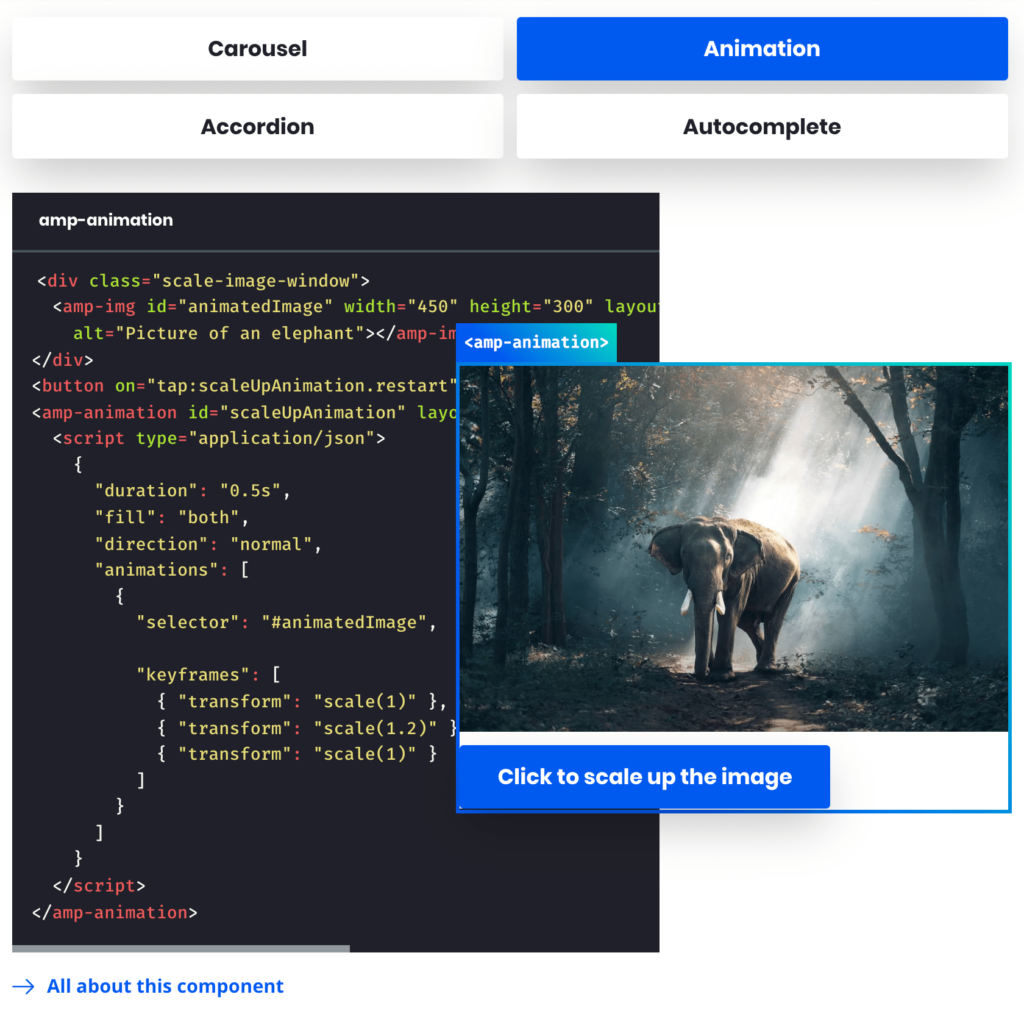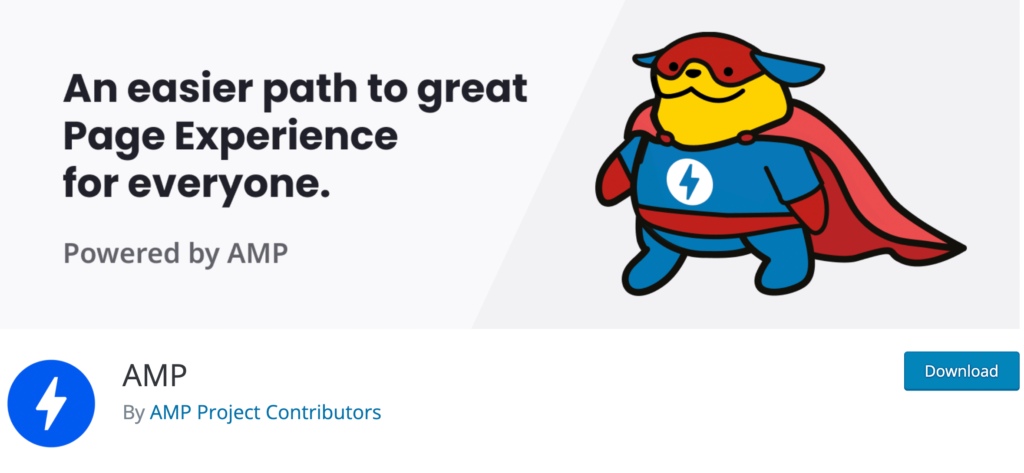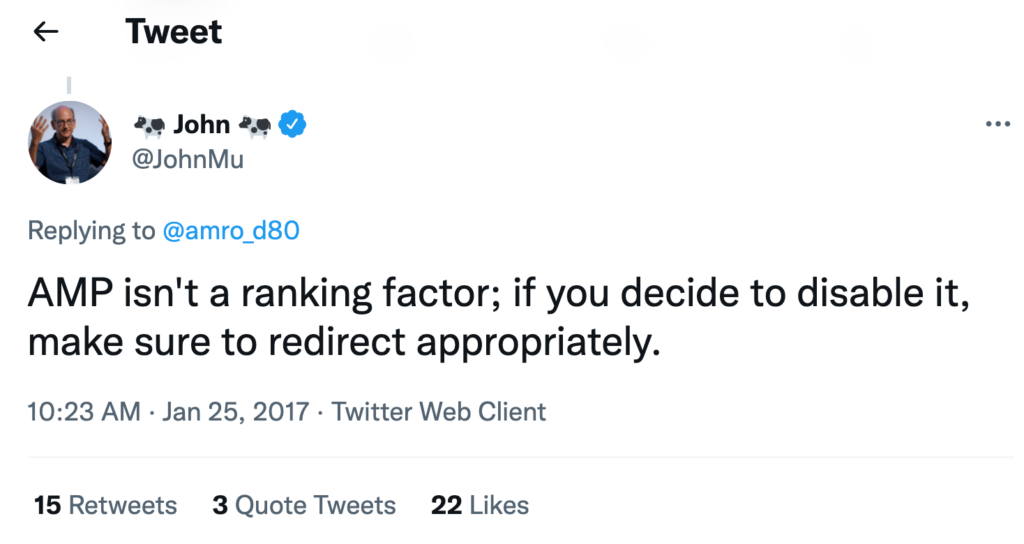For years, many WordPress website owners have wondered if they need to use Google Accelerated Mobile Pages (AMP) to keep their sites running smoothly. Due to a lack of clear information, it has remained uncertain whether Google AMP can improve Search Engine Optimization (SEO).
Fortunately, in 2021, Google released some definitive news about the state of AMP moving forward. With Google switching its focus to the Core Web Vitals, you likely don’t need to worry about using AMP in 2022. However, there are still some important caveats worth mentioning.
In this post, we’ll cover what Google AMP is and how it works. Then, we’ll explain why it has been an important topic of discussion in the past. Finally, we’ll provide you with the up-to-date implications for Google AMP in 2022 and beyond. Let’s dive in!
What Is Google AMP?
The Google AMP project started in 2015, and it became visible to online users in 2016. Since then, AMP features have become more common on news sites, emails, and advertisements.
According to Google, AMP is “a web component framework that you can use to easily create user-first websites, stories, emails, and ads”. Essentially, this open-source project leverages simple ‘components’ that you can copy from the AMP library and use on your site.
Some commonly used AMP components include Carousel, Animation, Accordion, and Autocomplete:
Users typically add AMP components to landing pages, blog posts, product pages, and news feeds. When used in combination, they can speed up loading times on mobile devices.
Why Is Google AMP Important for WordPress Users?
Google AMP achieves faster loading times by drastically reducing and optimizing the elements needed for your pages. For example, it removes or cuts down on slow-loading JavaScript, and minimizes style recalculations. In all, there are seven key factors that make AMP pages load more quickly.
Therefore, the project is highly relevant for any site with mobile users. Essentially, Google AMP has allowed developers to create stripped-down, faster versions of websites.
Nearly 90 percent of global searches come from Google. Therefore, optimizing your website for this search engine is crucial to attracting organic traffic. Google itself uses AMP HTML for some of its most popular, public-facing apps. These include the Google Search Console and Google News.
Additionally, for years, sites needed to use AMP to appear in the Google News Top stories carousel:
Due to this exclusivity, many users wondered if Google AMP was bad for WordPress. Some people also argued that Google used the AMP project to maintain dominance over online spaces.
However, in 2018, the AMP WordPress plugin evened the playing field for non-developers:
With this official plugin, you can take the guesswork out of setting up your WordPress site on Google AMP. The tool also enables you to maintain familiar WordPress workflows. Plus, it can help developers resolve more complex issues, such as resolving validation errors after an AMP test.
What Is the State of Google AMP in 2022?
Since its beginnings, Google AMP has been met with skepticism. Many people believe the project was simply a response to Apple News and Facebook Instant Articles. Furthermore, some developers consider the AMP optimization measures too extreme.
Additionally, some users worry that AMP gives Google too much control over the web. Nonetheless, Google has insisted that using its in-house tool does not affect your site’s rankings:
In 2021, this was finally made official. Google’s documentation now states that:
While AMP itself isn’t a ranking factor, speed is a ranking factor for Google Search. Google Search applies the same standard to all pages, regardless of the technology used to build the page.
Google Search Central
Additionally, as part of its ongoing page experience update, there have been some changes to Google News. Google says: “using the AMP format is no longer required“, and any page is eligible for its Top stories carousel.
Therefore, we recommend prioritizing your Core Web Vitals scores. As long as you do that, your pages should be just as likely to rank well as AMP-optimized ones. With that being said, if you run a news site, you might want to continue using AMP for the time being.
Conclusion
If you’re like many WordPress site owners, you may have been hesitant to adopt Google AMP since the beginning. Fortunately, this project is no longer as important as it once was.
If you were on the fence about implementing AMP, Google’s latest updates may dissuade you from using the project’s components on your website. Alternatively, if you’re not convinced by other optimization tools or you run a news site, you might want to keep using Google AMP in 2022.
Do you have any questions about the state of Google AMP in 2022? Let us know in the comments section below!





1 Comment